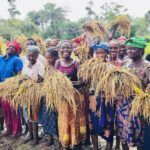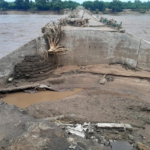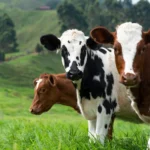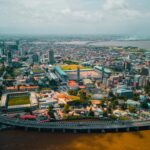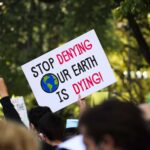One of the world’s top climate scientists has warned that humanity has entered a “dangerous new phase” in the climate crisis, with extreme weather already making life more fragile for billions of people, especially across Africa.
Speaking at a public lecture hosted by Wits University, Debra Roberts, professor and former co-chair of the Intergovernmental Panel on Climate Change (IPCC) working group II, said the planet is warming faster than expected and the consequences are unfolding in real time. She urged leaders to confront what she called “radical realism”.
“We are already living in the danger zone,” she told the audience. “Wildfires, heatwaves, deadly floods; these are not projections anymore. They are lived experiences.”
A shrinking margin of safety
Roberts said the Paris Agreement’s goal to limit warming to 1.5°C was always ambitious, but new science shows the world is on track to overshoot that threshold very soon.
She stressed that 1.2°C of warming is already causing widespread harm, from failed rains and shrinking harvests to collapsing ecosystems like coral reefs.
Every fraction of a degree now carries higher risks. “There are limits to how much we can adapt,” she warned. “Some systems are already hitting those limits.”
Africa in the firing line
African nations contribute the least to global emissions, yet the continent’s communities are bearing the sharpest impacts. Agriculture has already suffered large declines in productivity. Water scarcity is rising. Urban heat is turning cities into danger zones.
“This is not just a climate crisis,” Roberts said. “It’s a justice crisis.”
People in vulnerable regions are 15 times more likely to die from climate-related disasters than those in wealthy countries. Inequality, weak infrastructure and limited finance intensify these risks.
Preparing for overshoot
Roberts introduced a stark but pragmatic concept: temperature overshoot — a future where global warming temporarily exceeds climate targets before stabilising later.
“The realistic scenario is that we will pass 1.5°C, and likely 2°C,” she said. “We must be ready.”
That means planning for a world where coastlines shift, ecosystems erode, and millions could be displaced.
Governments should update every policy, from housing to food systems, using climate risk as a core metric.
Despite the warnings, Roberts rejected defeatism. She challenged leaders, researchers and citizens to act as if a safer future is still possible.
Her call to action was clear:
“Mitigate as if 1.5°C is possible. Adapt for 2°C. And build resilience for 3°C.”
More climate finance. More local adaptation. More protection for the most vulnerable. And success is measured not just in carbon cuts — but in human and ecosystem well-being.
“The goal doesn’t change,” she said. “What we do right now still decides the future.”



